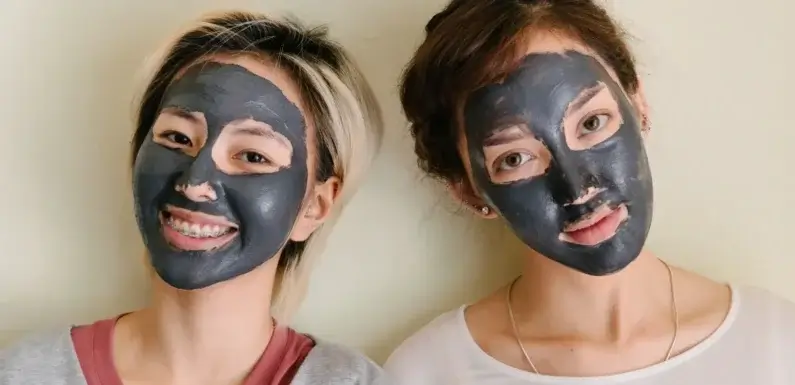
The black seed oil has been used since ancient times for its incredible health benefits. Not only does it have antibacterial and anti-cancer properties, but it can also be used for beauty purposes. The bioactive compounds in this oil make it a great addition to your skincare routine without the harsh chemicals of commercial products. In this article, we will show you what black seed oil can do for your skin and how you might be able to use it to help improve your complexion. Let’s get started!
What is Black Seed Oil?
Black seed oil is derived from Nigella sativa, a plant with pale blue, purple, or white flowers, native to Western Asia, Eastern Europe, and the Middle East. Its seeds are known as black seeds, black cumin seeds, black caraway seeds, black onion seeds, or kalonji.
Many use its flavorful seeds as a spice for making bread, curries, and pickles. They were also used as food preservatives for thousands of years. The oil is produced by cold-pressing the seeds. It can be applied topically to the skin or added to massage oils and shampoos. Higher-quality black seed oils can also be used for cooking.
Benefits of Black Seed Oil for Skin
Black seed oil has numerous science-backed benefits for the skin. Let’s look at some of them.
For Acne
The black seed oil has antibacterial and anti-inflammatory properties that can help reduce acne. One of its compounds, called thymohydroquinone, has a high activity against gram-positive bacteria such as Staphylococcus aureus that cause acne.
In one study, those who used a lotion containing black seed oil for two months experienced a significant reduction in acne lesions. In another study, subjects used a topical gel with black seed oil twice a day for two months. In the end, they had 78% fewer acne lesions vs. the control group.
For Psoriasis
Some studies suggest that black seed oil can help treat psoriasis. This is an inflammatory condition that causes scaly red patches on the skin.
An animal study examined the effects of this oil on rats and found that it helped decrease the symptoms of psoriasis. Another study tested a cream containing different ingredients such as olive oil, vitamin A, and black seed oil on 12 people. It found a 75% reduction in the severity of psoriasis in 83% of subjects after 12 weeks of application.
For Wounds
Black seed oil may also promote wound healing with its thymoquinone component. Thymoquinone is known for its ability to stimulate tissue growth and heal wounds.
Animal studies show that this compound’s anti-inflammatory and antioxidant effects may help heal burns and diabetic wounds. Other studies combined black seed oil with honey and tested it against injuries. They found a synergistic effect between the two that helped accelerate wound healing.
For Vitiligo
Image: Pexels
Some studies suggest that black seed oil may improve the symptoms of vitiligo. This is a skin condition that causes depigmentation. This effect may be due to the oil’s ability to increase pigmentation by spreading melanin, a natural pigment in the body.
In one study, participants applied a cream containing black seed oil on their skin for 6 months and saw an improvement in their pigmentation. In another study, participants experienced a reduction in the size of their vitiligo lesions after 6 months of applying topical black seed oil to their skin.
For Inflammation
Black seed oil is one of the essential oils that can aid inflammation. According to studies, this oil aids in the reduction of inflammation markers while protecting against chronic inflammatory disorders. Plus, it may help prevent other diseases like cancer and heart attack caused by inflammation.
A review article of 10 studies shows that eating black seed oil may lower the levels of several markers of inflammation and raise antioxidant levels in the blood. The study also suggests that black seeds are more efficient in their oil form. Another review suggests that black seed supplements can lower inflammatory indicators and help reduce oxidative stress.
For Eczema
Black seed oil may also help reduce the symptoms of eczema, which causes dry and itchy skin. It can also help prevent eczema-related skin infections with its wound healing properties.
One study compared the effectiveness of black seed oil with betamethasone cream on patients with hand eczema. It found that topical application of black seed oil twice a day for 4 weeks was just as efficient as the corticosteroid cream. An animal study found that administering one of black seed oil’s compounds, thymoquinone, helped reduce inflammation and improve the signs of eczema in mice.
For Aging
The last benefit of black seed oil for the skin is its ability to reduce the signs of aging by decreasing irritation and improving hydration. Black seed oil is also a rich source of antioxidants which can reverse the signs of premature aging.
Free radicals from UV light and air pollutants can create dark spots on your skin and slow collagen production. Studies show that black seed oil’s antioxidants can scavenge these free radicals and reduce the appearance of fine lines and wrinkles.
How to Incorporate Black Seed Oil Into Your Skincare Routine
Image: Pexels
You can easily incorporate black seed oil into your natural skincare routine to reap its numerous benefits. Here are some ideas to get you started.
Use It as a Facial Oil
Black seed oil makes a great facial oil that you can apply directly to your skin. You can even take it a step further by blending it with other essential oils for maximum benefit. Follow the DIY recipe below:
- Combine 30 ml of jojoba oil, sweet almond oil, and black seed oil in a bottle.
- Shake it gently to ensure all the oils are mixed.
- Cleanse your skin and pat it dry with a soft towel.
- Warm up a few drops of the facial oil between your fingers before massaging it into your face and neck.
- Leave it overnight.
Add It to Your Regular Face Cream
Alternatively, you can add black seed oil to your regular face cream for better hydration. The Egyptian Black Seed Oil is especially ideal for this purpose as it is high in omega fatty acids with an optimal amount of thymoquinone. Follow these steps:
- Mix 2-3 drops of black seed oil into your face cream.
- Cleanse your skin and pat it dry with a soft towel.
- Massage the moisturizer into your face and neck.
- Leave it overnight.
Use It as an Exfoliant
You can also use black seed oil as a face scrub to remove the dead layers of your skin. Follow the steps below:
- Remove your makeup and cleanse your skin with a gentle face wash.
- Mix 1 tablespoon of black seed oil with 3 tablespoons of honey and an equal amount of sugar.
- Apply the homemade scrub to your face and neck in circular motions.
- Rinse it off with warm water and pat your skin dry.
- Apply your moisturizer and enjoy your new healthy skin.
Make It the Last Part of Your Skincare Routine
You can also use black seed oil as the last step of your nightly skincare routine. You don’t need to add it to anything for this purpose. Just follow these steps:
- Follow your regular skincare routine.
- After applying your serum and night cream, massage the black seed oil into your skin to lock in all the other beneficial products.
- Go to sleep and wake up the next day with a glowing complexion.
Revive Your Skin With This Natural Remedy
Black seed oil can be a natural, herbal remedy to many of your skin’s problems. It’s generally a well-tolerated product, but it’s best to perform a small patch test to ensure you’re not sensitive to it. Add black seed oil to your skincare routine today and see its efficiency for yourself.
